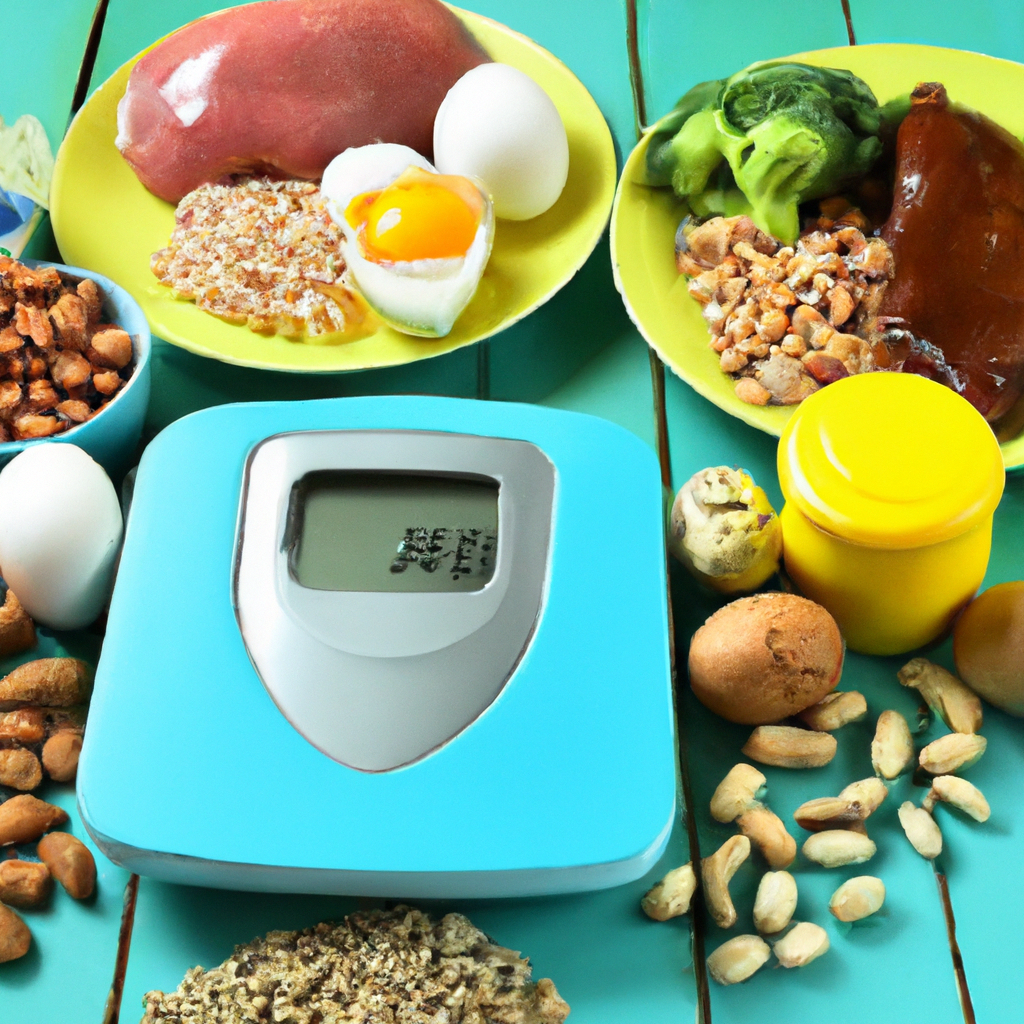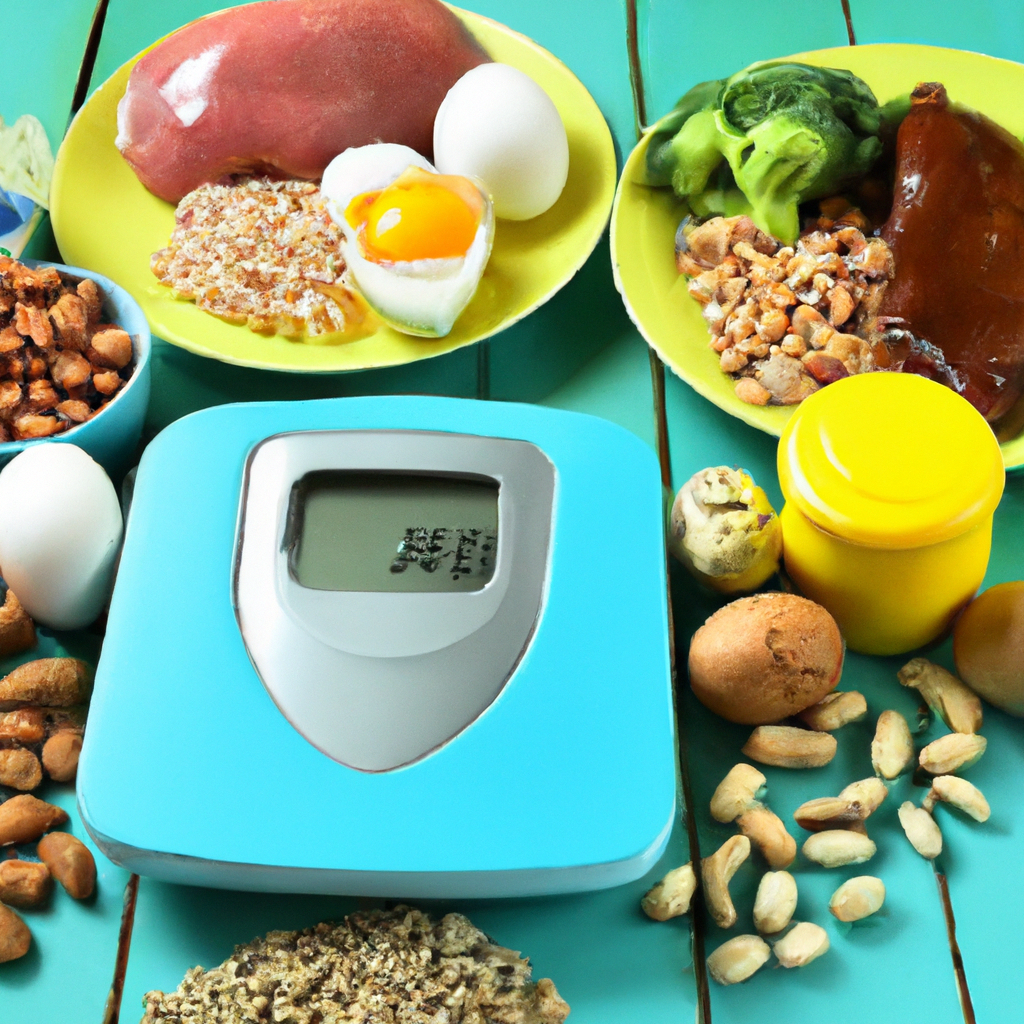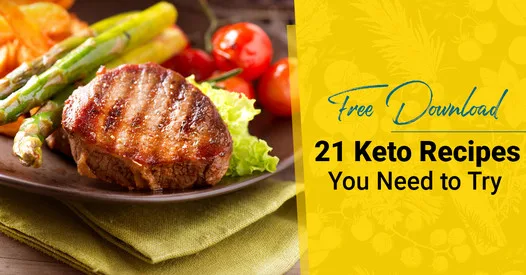Are you curious about high protein diets and their potential for weight loss? This article explores the promising link between high protein intake and shedding those pesky extra pounds. Armed with the latest research, you will learn about how protein can effectively satisfy your hunger, boost your metabolism, and potentially fuel your weight loss journey. If you’ve been considering a dietary change, this information-packed guide is the perfect resource to elucidate the connection between a high-protein diet and weight loss. Hosted by a knowledgeable fitness and nutrition expert, be prepared to ignite your journey towards a healthier, leaner you.
Understanding High Protein Diet
Let’s start with the basics. A high protein diet is a type of meal plan that emphasizes the consumption of high-protein foods. You might be wondering what this looks like on your plate. Well, it means focusing on incorporating things like lean meats, dairy, eggs, and plant-based protein sources such as beans and lentils, into your diet.
Definition of a high protein diet
Specifically, we can define a high protein diet as one where more than 20% of your total daily caloric intake comes from protein. This can vary depending on individual dietary needs and lifestyle factors, but that’s the general guideline.
What foods are high in protein
To help you visualise what a high protein diet entails, let’s talk about which foods are packed with protein. Animal products are often the first that come to mind, including meats (like chicken, beef, and turkey), fish, eggs, and dairy products. However, there are also many plant-based sources of protein. Lentils, chickpeas, quinoa, and nuts are also great additions to a high protein diet for all you vegetarians and vegans out there.
How Protein Aids in Weight Loss
Now you might be wondering how protein actually helps you lose weight. It’s quite simple really – protein has a complex relationship with your body’s metabolism and appetite.
Link between protein and metabolism
Let’s dive into the first part. Protein is known to boost your metabolism because it takes more energy for your body to digest than fats or carbohydrates. This effect, known as the thermic effect of food, can add up over time and lead to significant calorie burn.
Protein’s role in appetite control
Moving on to appetite control, protein is also considered to be a satiating macronutrient. This means that eating a diet high in protein can help keep you feeling fuller for longer, reducing those pesky cravings and helping you stick to your calorie-controlled diet.
Effects of protein on fat burning
Here’s one more thing to convince you of protein’s weight loss powers – it can help in fat burning. Studies show that after eating dietary protein, fat breakdown in your body is increased, further promoting weight loss.

Different Types of High Protein Diets
Don’t assume that there’s only one way to follow a high protein diet. There are various types, each presenting its unique approach and benefits.
Atkins diet
Starting with the Atkins diet, this is a low-carb diet that’s high in protein and fats. Founded by Dr. Robert Atkins, the diet works in phases, gradually introducing carbs in a controlled way.
Dukan diet
The Dukan diet is another popular high protein diet. It’s structured into four phases, starting with a short phase of eating only lean protein, then gradually adding in vegetables, some carbs, and eventually a maintenance phase to keep the weight off.
Ketogenic diet
Then we have the ketogenic, or keto, diet. It’s a super low-carb diet where the focus is on fats, with a moderate level of protein. Although it’s not as high in protein as the Atkins and Dukan diets, it’s still considered part of the high protein diet family.
Paleo diet
Lastly, there’s the Paleo diet, often referred to as the ‘caveman’ diet. This diet promotes consumption of high protein sources that our hunter-gatherer ancestors might have eaten, like lean meat and fish, along with fruits, vegetables, and nuts. It excludes processed foods, grains, and dairy.
Benefits of High Protein Diet for Weight Loss
Now that we’ve covered the basics and types of high protein diets let’s explore the potential benefits for weight loss.
Reduced hunger and increased fullness
Firstly, as we touched on earlier, eating more protein helps reduce your hunger levels and increase feelings of fullness. This is great for reducing overall calorie intake throughout the day.
Increased calorie burn
Next, protein’s high thermic effect means your body burns more calories digesting it compared to other macronutrients, leading to increased calorie burn overall.
Preservation of muscle mass during weight loss
Another perk of high protein diets is the preservation of muscle mass. Often, when people lose weight, they lose at least some muscle along with the fat. But high protein intake can help prevent this muscle loss and instead promote fat loss.
Potential reduction in belly fat
Research suggests that protein may specifically help in reducing belly fat, which is known to cause various health issues. Though more research is needed, this is another potential benefit of a high protein diet.

Risks and Considerations of a High Protein Diet
Of course, no diet is without its risks, and it’s essential to be aware of these before diving headfirst into a high protein diet.
Potential kidney damage
Firstly, if you have any kidney issues, consuming too much protein could potentially make things worse. It’s essential to consult your doctor before increasing your protein intake significantly.
Risk of nutrient deficiencies
When you’re focusing on consuming high amounts of protein, you may unintentionally neglect other important nutrients. This could lead to deficiencies in your diet, so it’s crucial to balance protein with other foods.
Potential increase in heart disease risk
Some studies suggest a potential link between long-term consumption of animal protein and an increased risk of heart disease. However, this is controversial, and other studies have found no such link. The takeaway here? It’s all about balance and variety, so mix in some plant sources of protein too.
Digestive issues
Switching to a high protein diet suddenly can cause digestive issues, including constipation or diarrhea. Gradually increasing protein intake and ensuring adequate fiber and water intake can help minimize these issues.
Practical Tips for Following a High Protein Diet
Given some of the potential risks we just mentioned, here are some practical tips to ensure you’re following a high protein diet properly and healthily.
Balancing protein with other nutrients
As we emphasized before, a balanced diet is essential even when focusing on protein. Don’t neglect your carbs and fats, as well as vitamins and minerals, they’re all part of a healthy diet.
Choosing lean sources of protein
When choosing your protein, lean sources are better for weight loss as they typically contain less fat. Think lean meats, fish, and plant-based proteins.
Including a variety of protein sources
Not only should your diet be balanced overall, but your protein sources should be varied too. This ensures you’re getting a good mix of different nutrients and can also help keep your meals exciting.
Studies Supporting Weight Loss on a High Protein Diet
You don’t have to take our word for it. There’s a wealth of scientific research out there supporting the link between high protein diets and weight loss.
Overview of existing studies
Many studies have shown that high protein diets can lead to more significant weight loss compared to low protein diets. This is attributed to the increased satiety and calorie burning effects we’ve discussed.
Specific results from major studies
One major study published in the Journal of the American College of Nutrition showed that participants following a high protein diet lost more weight and felt more satiated compared to those on a standard protein diet.
Limitations and considerations in the research
While these results are promising, it’s important to take them with a grain of salt. Many studies are short-term and have small sample sizes. Furthermore, individual results can vary greatly depending on a variety of factors.
Common Mistakes When Following a High Protein Diet
Before you rush off to get started on your high protein diet, keep these common mistakes in mind to avoid them down the line.
Consuming too much protein
Yes, following a high protein diet means eating more protein, but there can be too much of a good thing. Consuming excessive amounts can lead to weight gain, kidney problems, and other health issues.
Not drinking enough water
When you increase your protein intake, you also need to up your water intake. Dehydration can interfere with your weight loss efforts and lead to other health problems, so stay hydrated!
Excluding fiber and other nutrients
Finally, please don’t forget your fiber and other nutrients! It’s crucial to balance your high protein intake with a good dietary intake of other nutrient-dense foods.
Comparison with Other Types of Diets
How does a high protein diet stack up against other diets? Let’s look at some popular diet types.
Comparison with low-carb diets
Low-carb diets often also focus on high protein intake, so they have many similarities. However, a high protein diet doesn’t necessarily limit your carb intake as much, depending on the specific diet you follow.
Comparison with calorie-restriction diets
Calorie restriction diets focus on simply reducing your overall calorie intake. While they can be effective for weight loss, they may not provide the same satiety benefits as a high protein diet.
Comparison with plant-based diets
Plant-based diets can also be high in protein, but they focus more on getting your nutrients from plants. This can be a great approach if you’re looking to reduce your consumption of animal products.
Success Stories and Personal Experiences
Nothing beats hearing from people who’ve been there and done that. Let’s share some success stories from those who’ve had success with high protein diets for weight loss.
Story of a successful weight loss journey on a high protein diet
Let’s take Sarah. She struggled with her weight for many years before deciding to try a high protein diet. By focusing on lean proteins and reducing her intake of processed foods, she was able to lose 30 pounds in six months and has kept it off.
Insights into personal challenges and solutions
Like many people, Sarah had her challenges. Initially, she struggled to keep up with the diet as she found it hard to resist her cravings for carbs. However, she discovered that by planning her meals and having protein-rich snacks available, she was able to stick to the diet and reach her weight loss goals.
Tips and advice from those who have successfully lost weight on a high protein diet
Based on her experience, Sarah advises others to plan meals in advance and make sure to include a variety of protein sources. She also stresses the importance of moderation and balance, as eating too much protein can lead to problems.
In conclusion, yes, you can indeed lose weight on a high protein diet. It’s supported by science and backed by countless personal success stories. However, remember to approach it with balance and moderation in mind, and always consider consulting a healthcare provider before starting a new diet plan.

